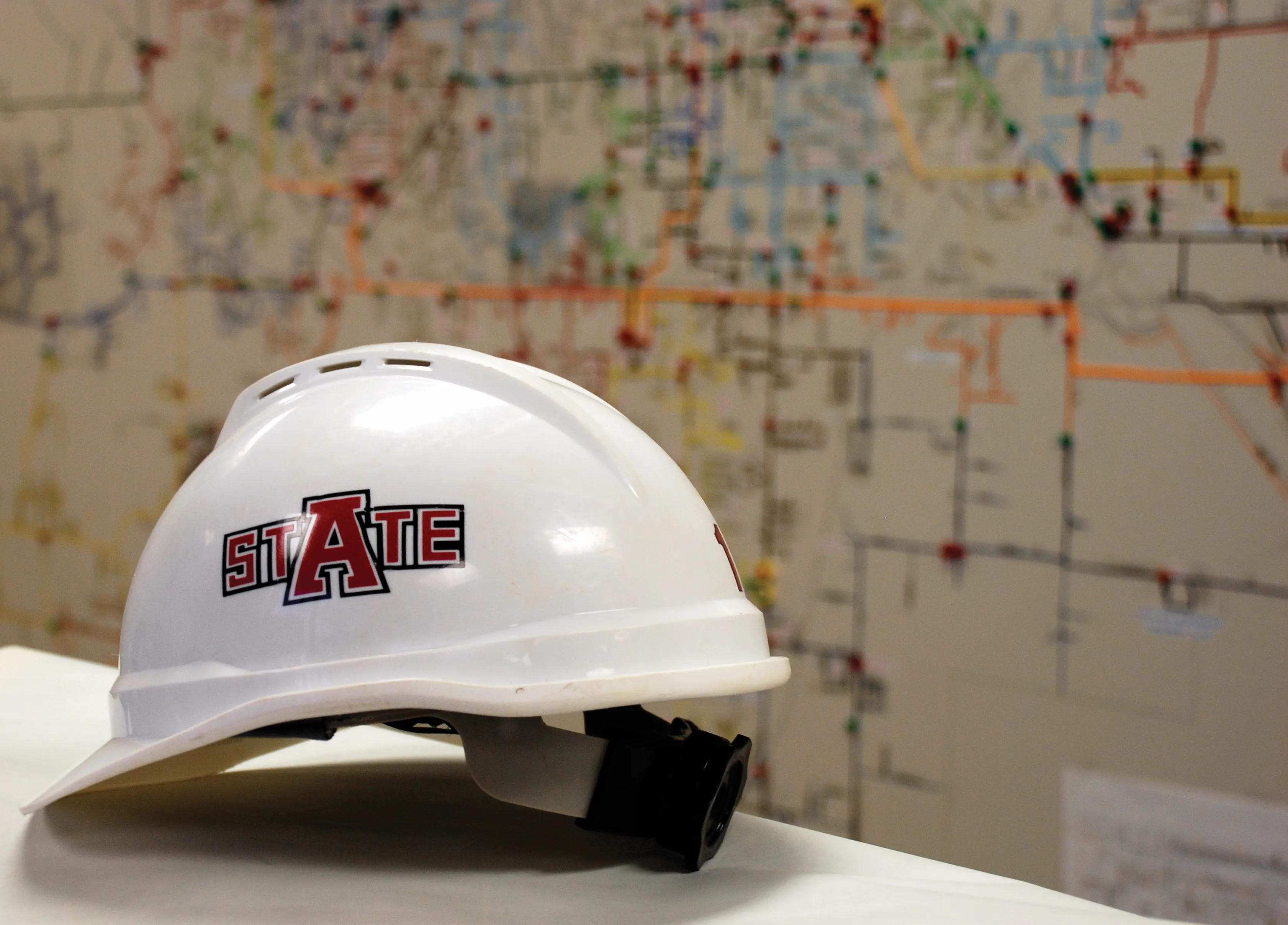College of Engineering & Computer Science

Bridges, Bots, and Big Data...
We’ll Help You From Start To Finish

Solving Tomorrow's Challenges
ASUCQ
The College of Engineering and Computer Sciences at ASUCQ offers the systems suite of engineering programs. Check out ASUCQ for more information about the campus, events, and programs.
If you have any questions, contact ASUCQ

Celebrating alumni
Our Alumni Academy celebrates the remarkable engineers and computer scientists who shape our industry today. Come see the ways our alumni help students.
Connect With Us.
Dean's Office
Follow us on Facebook!
Accreditation & Data
The Bachelor of Science in Civil Engineering program is accredited by the Engineering Accreditation Commission of ABET, under the commission’s General Criteria and Program Criteria of Civil and similarly named engineering programs.
Program Educational Objectives
- Graduates have successfully advanced in civil engineering practice as evidenced by their achievements and contributions to their employers and the greater engineering community.
- Graduates have pursued graduate degrees, obtained professional licensure, and/or completed professional development activities in continuing to advance their knowledge base in civil engineering or related professional fields.
- Graduates are actively working to improve their community and society in general by utilizing and sharing their engineering expertise.
Student Outcomes
- Identify, formulate, and solve complex engineering problems by applying principles of engineering, science, and mathematics
- Apply engineering design to produce solutions that meet specified needs with consideration of public health, safety, and welfare, as well as global, cultural, social, environmental, and economic factors
- Communicate effectively with a range of audiences
- Recognize ethical and professional responsibilities in engineering situations and make informed judgments, which must consider the impact of engineering solutions in global, economic, environmental, and societal contexts
- Function effectively on a team whose members together provide leadership, create a collaborative and inclusive environment, establish goals, plan tasks, and meet objectives
- Develop and conduct appropriate experimentation, analyze and interpret data, and use engineering judgment to draw conclusions
- Acquire and apply new knowledge as needed, using appropriate learning strategies
Program Educational Objectives
- Graduates have successfully advanced in civil engineering practice as evidenced by their achievements and contributions to their employers and the greater engineering community.
- Graduates have pursued graduate degrees, obtained professional licensure, and/or completed professional development activities in continuing to advance their knowledge base in civil engineering or related professional fields.
- Graduates are actively working to improve their community and society in general by utilizing and sharing their engineering expertise.
Student Outcomes
- Identify, formulate, and solve complex engineering problems by applying principles of engineering, science, and mathematics
- Apply engineering design to produce solutions that meet specified needs with consideration of public health, safety, and welfare, as well as global, cultural, social, environmental, and economic factors
- Communicate effectively with a range of audiences
- Recognize ethical and professional responsibilities in engineering situations and make informed judgments, which must consider the impact of engineering solutions in global, economic, environmental, and societal contexts
- Function effectively on a team whose members together provide leadership, create a collaborative and inclusive environment, establish goals, plan tasks, and meet objectives
- Develop and conduct appropriate experimentation, analyze and interpret data, and use engineering judgment to draw conclusions
- Acquire and apply new knowledge as needed, using appropriate learning strategies
The Engineering Technology programs offered by Arkansas State University are accredited
by the Association of Technology, Management, and Applied Engineering (ATMAE). 
Program Educational Objectives
- Graduates have successfully advanced in civil engineering practice as evidenced by their achievements and contributions to their employers and the greater engineering community.
- Graduates have pursued graduate degrees, obtained professional licensure, and/or completed professional development activities in continuing to advance their knowledge base in civil engineering or related professional fields.
- Graduates are actively working to improve their community and society in general by utilizing and sharing their engineering expertise.
Student Outcomes
- Identify, formulate, and solve complex engineering problems by applying principles of engineering, science, and mathematics
- Apply engineering design to produce solutions that meet specified needs with consideration of public health, safety, and welfare, as well as global, cultural, social, environmental, and economic factors
- Communicate effectively with a range of audiences
- Recognize ethical and professional responsibilities in engineering situations and make informed judgments, which must consider the impact of engineering solutions in global, economic, environmental, and societal contexts
- Function effectively on a team whose members together provide leadership, create a collaborative and inclusive environment, establish goals, plan tasks, and meet objectives
- Develop and conduct appropriate experimentation, analyze and interpret data, and use engineering judgment to draw conclusions
- Acquire and apply new knowledge as needed, using appropriate learning strategies
The Bachelor of Science in Mechanical Engineering program is accredited by the Engineering Accreditation Commission of ABET, under the commission’s General Criteria and Program Criteria for Electrical, Computer, Communications, Telecommunication(s) and similarly named engineering programs.
Program Educational Objectives
- Graduates have successfully advanced in civil engineering practice as evidenced by their achievements and contributions to their employers and the greater engineering community.
- Graduates have pursued graduate degrees, obtained professional licensure, and/or completed professional development activities in continuing to advance their knowledge base in civil engineering or related professional fields.
- Graduates are actively working to improve their community and society in general by utilizing and sharing their engineering expertise.
Student Outcomes
- Identify, formulate, and solve complex engineering problems by applying principles of engineering, science, and mathematics
- Apply engineering design to produce solutions that meet specified needs with consideration of public health, safety, and welfare, as well as global, cultural, social, environmental, and economic factors
- Communicate effectively with a range of audiences
- Recognize ethical and professional responsibilities in engineering situations and make informed judgments, which must consider the impact of engineering solutions in global, economic, environmental, and societal contexts
- Function effectively on a team whose members together provide leadership, create a collaborative and inclusive environment, establish goals, plan tasks, and meet objectives
- Develop and conduct appropriate experimentation, analyze and interpret data, and use engineering judgment to draw conclusions
- Acquire and apply new knowledge as needed, using appropriate learning strategies
Enrollment
Undergraduate
| Enrollment | 2021-2022 | 2022-2023 | 2023-2024 |
|---|---|---|---|
| Civil Engineering | 108 | 100 | 111 |
| Electrical Engineering | 61 | 63 | 63 |
| Mechanical Engineering | 152 | 161 | 171 |
Graduate
| Enrollment | 2021-2022 | 2022-2023 | 2023-2024 |
|---|---|---|---|
| Engineering | 12 | 11 | 10 |
| Engineering Management | 270 | 312 | 288 |
Graduation data
Undergraduate
| Degrees Awarded | 2021-2022 | 2022-2023 | 2023-2024 |
|---|---|---|---|
| Civil Engineering | 12 | 12 | 20 |
| Electrical Engineering | 4 | 10 | 9 |
| Mechanical Engineering | 19 | 25 | 23 |
Graduate
| Degrees Awarded | 2021-2022 | 2022-2023 | 2023-2024 |
|---|---|---|---|
| MS in Engineering | 4 | 2 | 1 |
| MS in Engineering Management | 51 | 129 | 93 |
Calculator Policy
There are specific requirements about calculators that students can use in tests and exams for undergraduate classes with the following prefixes: ENGR, CE, EE, and ME classes.
To protect the integrity of all tests/exams, only the calculators listed below are allowed. This policy is following the NCEES guideline that can be found here (https://ncees.org/exams/fe-exam/):
- Casio: All fx-115 and fx-991 models (Any Casio calculator must have “fx-115” or “fx-991” in its model name.)
- Hewlett Packard: The HP 33s and HP 35s models, but no others
- Texas Instruments: All TI-30X and TI-36X models (Any Texas Instruments calculator must have “TI-30X” or “TI-36X” in its model name.)
Other than tests/exams, it is not necessary to use the calculators listed above but students are strongly advised to use those calculators. At their discretion, instructors of the classes listed above may (i) require the use of the calculators listed above for all work related to the course, (ii) allow calculators in their course(s) including the tests/exams other than those listed above, due to specific course/computational requirements.
Undergraduate classes in other majors within the college do not have any specific calculator requirement. In general, instructors for any undergraduate class in the college may not allow the use of calculators at all in certain exams. In this case, students will be notified in advance.
Approved January 2025













